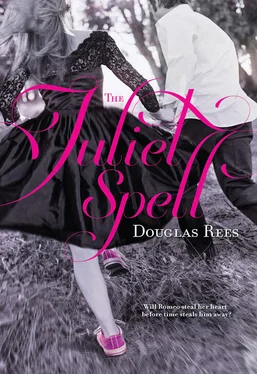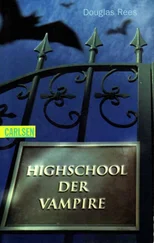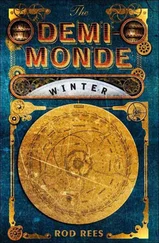Right now you’re thinking, “So what? My mother never played Juliet. Nobody’s mother I know ever played Juliet. And none of the mothers’ mothers ever played Juliet. Your mother is right on track.” Which would be true, except that, before she was a nurse, my mother was an actor.
You never heard of her. Which means she was just like ninety-nine and nine-tenths percent of all the actors in America. But she went to Juilliard, and when she graduated she came out to the West Coast and joined what they call The I-5 Repertory Company.
The I-5 is the freeway that runs between Seattle and San Diego, and there are actors who make their living—or almost make a living—moving up and down it. There’s a lot of theater in Seattle, some in Portland, and there’s the Shakespeare Festival in Ashland, Oregon, which is huge. There’s work in San Francisco and Sacramento and Los Angeles and San Diego if you can get it, and there are side trips to places like Austin.
That’s what my mother did for eight years. She was good, she was pretty and twice she was nearly cast as Juliet, once in Ashland and once in San Diego.
When she turned thirty and she was still just almost making a living, and she gave up acting and went into a nursing program, the one regret she had was that she’d never played that part.
She’d plowed though nursing school, which she loved, gotten out and found work right away at Bannerman Hospital here in Guadalupe, California, met my dad and had me. And I’d caught the acting bug from her, and we’d all been happier than most people I knew, until my dad, who had a Ph.D. in psychology, decided he needed to “develop as an individual” and told Mom he was taking off.
I hadn’t seen him since ninth grade. That was almost two years. As far as we knew, he was wandering around America, sometimes working, sometimes not. Once in a while, we got a postcard.
Mom and I kept hoping he’d come back.
If I could play Juliet, I would give my performance to my mom. I would put it in the program as a dedication and say something nice. In one way, it wouldn’t be much. But in another way, it would be gigantic. It would be a way of saying “I love you” in big, fat, Elizabethan letters.
When I got home, the house was quiet. No surprise there. Mom was working a double shift over at Bannerman and wasn’t supposed to be home until tomorrow morning. But the note on the bulletin board where we communicated with each other was surprising:
CHILD SUPPORT! Your dad paid up. That means this is my last double shift at the hospital for a while. I’ll be home tomorrow about seven-thirty. Who knows? I might even see you before you go to school. It’d be nice to touch base with you again before you graduate.
Love,
Mom
My parents weren’t divorced. If they’d been divorced, things might actually have been better for us. Then at least we’d have had the law on our side when Dad didn’t pay the money he’d promised to help keep me alive. But they were just “separated.” He paid when he paid. Which was somewhere between not often and never. And when he did pay, it wasn’t much. But today there was a check on the fridge, and it was big. Almost a whole year’s back cash for the privilege of not seeing me.
I tried to ignore the pang that gave me, and thought about the good things that the money would mean. A dinner out with Mom to celebrate was one thing for sure. And some new school clothes. And some bills paid off. And Mom working eight hours a day instead of sixteen, at least for a while. Thank you, Daddy, wherever you are. For a few minutes, I wasn’t thinking about playing/not playing Juliet.
But then I was again.
The child support was a sign. When you’re an actor, everything is a sign of something else. Actors are the most superstitious people on the planet. And it was obviously a good sign. Anything I did now to move things in my direction would work. That’s what I told myself.
And it made me think of something else. A whole new obsession. Maybe, if I played Juliet, my dad would come home. I mean, I’d tried out, and here was the child support. Therefore, if I got the part, he’d come back. Perfectly logical.
This is what shrinks like Dad call fantasizing. They will tell you that it is immature and a sign of emotional distress. They will also tell you that it doesn’t work.
But I had nothing to lose by believing it. And fantasy is only fantasy if it doesn’t work. So I went into my room and got out my spell kit.
I’d read about spell kits the year before in a book called Spellcraft For the Average Teen. The writer, who called herself Aurora Skye, had written a sort-of cookbook for how to get things you wanted. And I’d put mine together and started using it daily.
What did I want? I wanted my father to come home. And I’d cast spells for it for over a month, every afternoon when Mom wasn’t home, which was pretty much all of them. They were called drawing spells, because they were supposed to draw the person to you.
You do not need me to tell you how well they worked. Daddy was still out there somewhere. But now was different. There was that check. That big check that meant he’d remembered us. Remembered me. So, fantasizing said, it was time. Aurora Skye said it, too. If a spell didn’t work, she wrote over and over again, don’t give up. Keep casting and the spell will work in its own time. Today, right now, I believed it.
So I got out the cardboard box where I kept the odds and ends you needed to cast spells and flipped open the book to Spells For Success. The chapter had a lot of subheadings: Success in Love, Success in Sports, Success on Tests, but nothing that specifically said Success in Getting Cast as Juliet. The closest I could come was Success in Becoming Famous.
First, draw a perfect circle eighteen inches across. (Everyone who’s taken geometry for a day knows there’s no such thing in real life as a perfect circle. This is probably the second-best escape clause anybody ever had for when something magical doesn’t work. The best is, “It must not be time.” But what I had for a circle was a round eighteen-inch piece of glass, a little tabletop I’d gotten at the garden section of a hardware store. It was better than anything I could have drawn.)
Next, mix ½ cup Epsom salts and ¼ cup rubbing alcohol in a baking dish. Form into a volcano shape. (This was pretty much the equivalent of bake at 350 degrees, apparently. Most of the spells started this way.)
Place in the cone of the volcano one cube of sugar dyed red. (I had a few left over from last year. They were faded to a sort of brown now, but I wasn’t in a mood to be fussy. They’d been red once.)
Place the dish in the exact center of the circle. (Ah, yes. There’s that word again. Exact. I lined it up with a ruler on four sides. But how could anything ever be exactly exact?)
Say the following spell: “Powers that be, harken to me. Send me success in the thing I confess. To the universe proffering, I make this offering.” Then say what it is that you want.
Light the volcano with an ordinary wooden match that has been blessed by a Practitioner. (A Practitioner is what the book calls people who sell stuff for spells. I had a box of Practitioner Matches with three left in it.)
When the alcohol is consumed, a thick crust will be left in the bottom of the dish. The crust is the obstacles in your path burned away. When the dish has cooled, remove this reverently to the trash.
I set everything out on the kitchen table and said the spell. “Powers that be, harken to me. Send me success in the thing I confess. To the universe proffering, I make this offering. I want to be Juliet. Please, please, please, please, please. Make me Juliet.”
And I lit the match.
There was a quiet whoosh and orange flames licked up all over my little volcano. The red cube burned. It was pretty. Very theatrical.
Читать дальше












